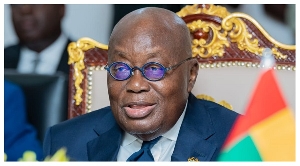Regional News of Tuesday, 21 January 2014
Source: GNA
Sanity in Sanitation group wins MEST-UNICEF competition
The Sanity in Sanitation Group, a software development team have been adjudged the winner in the Meltwater Entrepreneurial School of Technology (MEST) -UNICEF Ghana Hackathon competition in Accra.
The three-day product development event organized by MEST was on the theme: “Solving Big Problems Using Little Technology” was organised to find new technologies to serve the hard-to-reach in Ghana.
The group which was made up of Lady Omega-Hammond, Cheryl Dzifa Tetteh, Gerald Pharin and Sherry Thompson took home an amount of Ghc5,000.00 as their prize.
The team developed a grading system to help environmental health assistants collect data using questionnaires and a data analysis platform that displays responses from the various communities and districts via mapping technologies.
Participants in the competition tackled issues ranging from water supply tracking to access to information, and sanitation.
Ms Ekua Odoom, Managing Director of MEST, said the software developer is dedicated to supporting young and bright Africans to start their own software companies to create wealth and jobs in Africa.
She said their goal was that, by setting this pace, we could inspire generations that follow to achieve greatness on the continent.
She said her organisation was excited to partner with key development players such as UNICEF Ghana, to pursue the vision of touching the continent in a phenomenal way- by helping find innovative technologies to serve the hard-to-reach in Ghana.
Ms Susan Namondo Ngongi, UNICEF Ghana Country Representative, said new ideas and technologies were needed to serve the hardest to reach communities in Ghana.
She said partnering with the MEST gave UNICEF the opportunity to encourage innovation by Ghanaians for Ghanaians, explaining that the partnership would bring different sets of skills, viewpoints and influence to the table.
Ms Ngongi said most of the problem statements presented by UNICEF were around how the teams were working with their partners to improve their ability to target resources to monitor and manage results.










